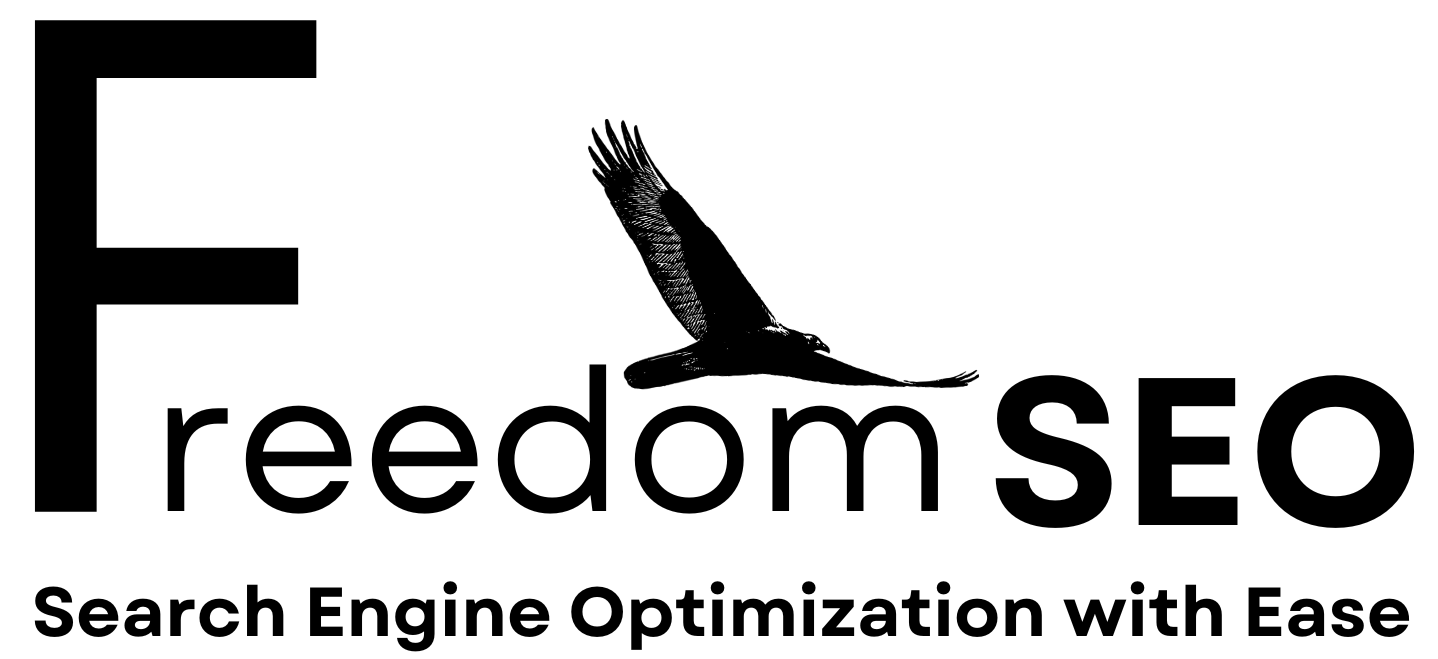Understanding Measuring SEO Success: What It Means

Tracking your website traffic might feel like the only score that matters. Surprisingly, effective SEO can return up to 12.2 times your marketing investment , according to recent research. But just counting clicks and visits leaves most of that value hidden and it’s the unexpected connections between metrics that unlock real results for Canadian businesses.
Table of Contents
Quick Summary
| Takeaway | Explanation |
|---|---|
| Measuring SEO success is multi-faceted. | It involves tracking various metrics like organic traffic and conversion rates, not just visitor counts. |
| Continuous metric analysis drives improvement. | Regularly review SEO data to improve strategies and adapt to market changes effectively. |
| Focus on user engagement metrics. | Metrics such as bounce rate and average session duration provide deeper insights into user behavior and website performance. |
| Establish benchmarks for tracking performance. | Setting performance benchmarks helps in monitoring progress and identifying areas for optimization over time. |
| Data informs strategic decision-making. | Analyzing SEO metrics provides crucial insights that guide marketing investments and business strategies. |
Defining SEO Success: Understanding the Metrics
Measuring SEO success goes far beyond simple website traffic numbers. It requires a comprehensive approach that evaluates multiple performance indicators revealing how effectively your online presence connects with target audiences and search engine algorithms.
Key Performance Indicators for SEO Evaluation
Successful SEO measurement involves tracking specific metrics that provide meaningful insights into your website’s digital performance. According to Ohio State University’s Marketing Department , critical metrics include:
- Organic Traffic : Total visitors arriving through search engine results
- Keyword Rankings : Position of your webpages for targeted search terms
- Conversion Rates : Percentage of visitors completing desired actions
- Bounce Rate : Percentage of users leaving your site after viewing one page
Understanding Comprehensive SEO Performance
Evaluating SEO success requires looking beyond surface-level statistics. Business owners must analyze how different metrics interconnect to create a holistic view of online visibility. This means examining not just raw numbers, but understanding the quality and intent behind website interactions.
Here is a comparison table highlighting core SEO metrics, what they measure, and their value for business decision-making in Canadian digital marketing.
| Metric | What It Measures | Strategic Value for Businesses |
|---|---|---|
| Organic Traffic | Visitors arriving via search engine results | Indicates effectiveness of content and visibility |
| Keyword Rankings | Page position for targeted search terms | Tracks competitiveness and visibility progress |
| Conversion Rate | Percentage of visitors completing actions | Measures ROI and quality of traffic |
| Bounce Rate | Users leaving after one page view | Gauges engagement and on-site experience |
| Average Session Duration | Time spent per visit | Reveals user interest and content relevance |
| Pages per Session | Pages viewed in one visit | Reflects depth of engagement |
| Click Through Rate (CTR) | Percentage clicking from search to site | Assesses appeal and relevance in search results |
Technical elements play a crucial role in measuring SEO effectiveness. Website speed, mobile responsiveness, and structured data implementation significantly impact search engine rankings. By learning more about quick SEO strategies , businesses can develop more nuanced approaches to measuring their digital performance.
Interpreting Metrics for Strategic Insights
Successful SEO measurement isn’t about achieving perfect scores but understanding trends and continuous improvement. Businesses should regularly review their metrics, identifying areas of strength and opportunities for optimization. This means tracking not just current performance but establishing benchmarks and monitoring progressive changes over time.
The goal of measuring SEO success is transforming data into actionable strategies that enhance online visibility, attract relevant traffic, and ultimately drive business growth. By adopting a comprehensive, nuanced approach to metric analysis, Canadian businesses can develop more effective digital marketing strategies.
The Importance of Measuring SEO Success for Businesses
In the competitive digital landscape, measuring SEO success is no longer optional but a strategic necessity for businesses seeking sustainable online growth. Understanding how your digital strategies perform enables targeted improvements and smarter resource allocation.
Strategic Business Insights Through SEO Metrics
SEO measurement provides far more than website performance data. According to Lamar University’s research , effective SEO can yield returns up to 12.2 times marketing expenditure. This demonstrates how precise measurement translates directly into business value.
Key strategic insights include:
- Competitive Positioning : Understanding where your business ranks compared to industry competitors
- Consumer Behavior Analysis : Identifying which content resonates most with your target audience
- Resource Optimization : Directing marketing investments toward highest performing channels
- Revenue Potential : Correlating SEO performance with potential business growth
Economic Impact of SEO Performance Tracking
Measuring SEO success goes beyond vanity metrics. It represents a critical business intelligence tool that helps organizations make data driven decisions. By exploring advanced SEO strategies , businesses can transform raw data into actionable marketing intelligence.
Long Term Business Growth Strategies
Consistent SEO performance tracking enables businesses to develop adaptive digital strategies. Regular metric analysis helps identify emerging trends, adjust marketing approaches, and maintain competitive relevance. This proactive approach ensures businesses remain agile in rapidly evolving digital markets.
Successful SEO measurement is not about achieving perfect scores, but creating a dynamic framework for continuous improvement. By understanding and leveraging performance metrics, Canadian businesses can build robust online presences that drive meaningful engagement and sustainable growth.
Key Metrics Used in Measuring SEO Success
Navigating the complex world of SEO requires understanding specific metrics that reveal the true performance of your digital strategy. These metrics provide insights beyond surface level data, offering a comprehensive view of online visibility and engagement.

Traffic and Visibility Metrics
According to Ohio State University’s Marketing Department , tracking traffic sources and keyword rankings forms the foundation of SEO measurement. These metrics reveal how effectively your content attracts and engages potential customers.
Key traffic and visibility indicators include:
- Organic Search Traffic : Total visitors arriving through search engine results
- Keyword Rankings : Current position of your webpages for targeted search terms
- Click Through Rate (CTR) : Percentage of users clicking on your search result
- Search Visibility Score : Overall percentage of potential impressions captured
User Engagement and Performance Metrics
Engagement metrics transform raw traffic numbers into meaningful insights about user behavior. By understanding web design impact on SEO , businesses can improve both technical performance and user experience.
Critical engagement metrics to monitor:
- Bounce Rate : Percentage of users leaving after viewing one page
- Average Session Duration : Time users spend on your website
- Pages per Session : Number of pages viewed during a single visit
- Conversion Rate : Percentage of visitors completing desired actions
Advanced SEO Performance Analysis
Comprehensive SEO success measurement goes beyond individual metrics. It requires understanding how different performance indicators interconnect and influence overall digital strategy. This holistic approach helps businesses identify strengths, address weaknesses, and continuously refine their online presence.
Successful SEO measurement is an ongoing process of analysis, adaptation, and improvement. By systematically tracking and interpreting these key metrics, Canadian businesses can develop more targeted, effective digital marketing strategies that drive meaningful online growth.
How Tracking SEO Success Impacts Business Strategies
Tracking SEO success transforms digital marketing from guesswork into a precise, data driven approach. By understanding performance metrics, businesses can make strategic decisions that directly impact their online growth and market positioning.
This table summarizes how tracking SEO success impacts strategic business actions at different stages, helping Canadian businesses move from data collection to long-term growth.
| Stage of SEO Measurement | Primary Focus | Impact on Business Strategy |
|---|---|---|
| Metrics Tracking | Collecting data on performance indicators | Identifies baseline and areas needing improvement |
| Data Analysis | Interpreting patterns and user behaviours | Informs adjustments and refines marketing approaches |
| Actionable Strategy Development | Translating insights into practical actions | Drives campaigns and content tailored for results |
| Continuous Monitoring & Optimisation | Ongoing review to identify new trends | Ensures adaptability and sustained growth |
| Benchmarking & Competitive Analysis | Comparing with industry standards | Guides positioning and investment decisions |
Strategic Decision Making Through SEO Insights
According to research in Digital Marketing , effective SEO tracking provides critical insights that influence broader business strategies. These insights help organizations understand their digital landscape and make informed marketing investments.
Key strategic insights from SEO tracking include:
- Market Positioning : Understanding competitive digital presence
- Customer Behavior Analysis : Identifying audience preferences and interaction patterns
- Resource Allocation : Directing marketing budgets toward highest performing channels
- Content Strategy Refinement : Developing targeted content based on performance data
Translating Metrics into Actionable Strategies
SEO metrics are more than numbers they represent direct communication from your target audience. By exploring quick SEO optimization techniques , businesses can transform raw data into strategic marketing approaches.
Effective translation of SEO metrics involves:
- Identifying high performing content and topics
- Understanding user engagement patterns
- Recognizing potential areas for website improvement
- Developing targeted marketing campaigns
Long Term Business Growth Through Continuous Monitoring
Consistent SEO tracking enables businesses to develop adaptive digital strategies. Regular metric analysis helps predict market trends, adjust marketing approaches, and maintain competitive relevance. This proactive approach ensures businesses remain agile in rapidly evolving digital markets.
Successful businesses view SEO tracking not as a one time activity but as an ongoing process of learning and optimization. By systematically interpreting performance metrics, Canadian businesses can build robust digital strategies that drive meaningful engagement and sustainable growth.
Interpreting Data: Making Sense of SEO Success Measurements
Interpreting SEO data requires more than simply reading numbers it demands a strategic understanding of how various metrics interconnect and reflect your digital marketing performance. Effective interpretation transforms raw data into actionable business intelligence.
Contextualizing SEO Performance Metrics
According to Ohio State University’s Marketing Department , understanding SEO metrics requires looking beyond isolated statistics and examining their broader implications. Performance data tells a comprehensive story about your digital strategy’s effectiveness.
Key aspects of metric contextualization include:
- Trend Analysis : Examining performance changes over specific time periods
- Comparative Evaluation : Benchmarking against industry standards
- Correlation Insights : Understanding how different metrics influence each other
- Performance Trajectory : Identifying long term growth patterns
Advanced Data Interpretation Strategies
Successful data interpretation goes beyond surface level observations. By understanding search engine dynamics , businesses can develop more nuanced approaches to analyzing their digital performance.
Critical interpretation strategies involve:
- Recognizing potential causation between different metrics
- Understanding seasonal and cyclical performance variations
- Identifying leading indicators of future performance
- Distinguishing between meaningful signals and statistical noise
Translating Metrics into Strategic Decisions
The ultimate goal of SEO data interpretation is transforming insights into targeted business strategies. This process requires a holistic approach that considers technical performance, user behavior, and broader market trends.
Successful businesses treat SEO metrics as a dynamic communication channel from their digital audience. By systematically analyzing and responding to these insights, Canadian organizations can develop more responsive, effective digital marketing strategies that adapt to changing market conditions and user preferences.

Ready to Turn Your SEO Metrics Into Top Google Rankings?
Many business owners struggle to understand what their SEO numbers truly mean or how to use those measurements for real growth. The article explained the importance of tracking metrics like organic traffic, conversion rates, and keyword rankings, but making sense of this data and turning it into higher visibility is challenging. If you have felt overwhelmed or unsure about where to focus your energy, you are not alone. Knowing your results is only the first step. Actually improving those results takes proven strategy and expertise.

Let Freedom SEO transform your insights into results. Our Canadian team combines advanced reporting with hands-on local SEO techniques so you not only track SEO success, you achieve it. Explore our managed SEO services to move your business into the top 3 Google results. Want a custom evaluation or fast help with Google Business Profile management? Visit our homepage for a free consultation and move your business forward today. The best time to invest in real SEO growth is right now.
Frequently Asked Questions
What are the key metrics to measure SEO success?
Key metrics for measuring SEO success include organic traffic, keyword rankings, conversion rates, and bounce rates. These indicators help you assess how well your online presence reaches and engages your target audience.
How can SEO performance impact business growth?
Effective SEO performance can lead to increased organic traffic, higher conversion rates, and improved online visibility, ultimately contributing to sustainable business growth by attracting more relevant customers.
Why is it important to track SEO metrics continuously?
Continuous tracking of SEO metrics helps businesses identify trends, adapt strategies, and maintain a competitive edge in the digital landscape. It allows for timely adjustments based on emerging data and user behavior patterns.
What does it mean to interpret SEO data?
Interpreting SEO data involves analyzing metrics to understand their implications for your digital marketing strategy. This process requires contextualization, recognizing correlations, and leveraging insights to make informed business decisions.
Recommended

















